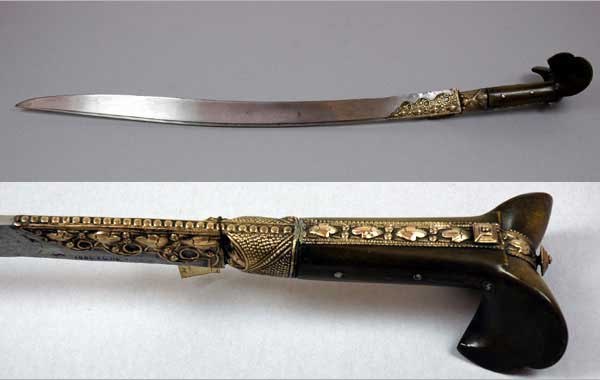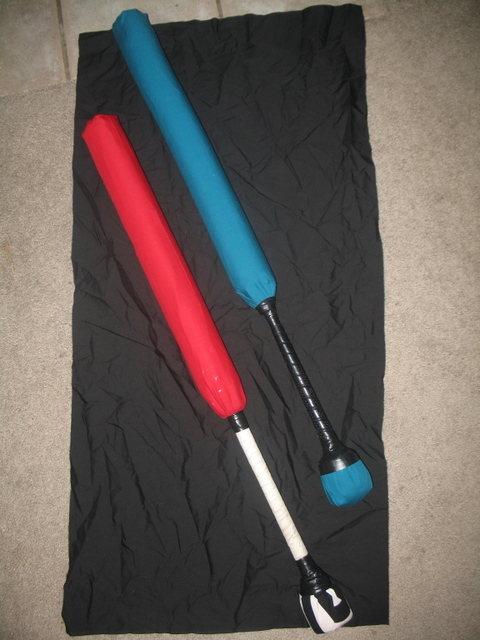Sword
N. A sharp pointy metal object. A sword fundamentally consists of a blade, a hilt, and a pommel, typically with one or two edges for striking and cutting, and a point for thrusting. The basic intent and physics of swordsmanship have remained fairly constant through the centuries, but the actual techniques vary among cultures and periods as a result of the differences in blade design and purpose.

Humans have manufactured and used metal bladed weapons from the Bronze Age onwards. The sword developed from the dagger when the construction of longer blades became possible, from the late 3rd millennium BCE in the middle-east, first in arsenic copper, then in tin-bronze. The oldest sword-like weapons are found at Arslantepe, Turkey, and date to around 3300 BCE. It's however believed that these are longer daggers, and not the first ancestors of swords. Swords longer than 90 cm were rare and not practical during the Bronze Age as this length exceeds the tensile strength of bronze, which means such long swords would bend easily. It was not until the development of stronger alloys such as steel that longswords became practical for combat.
Definition in Amtgard
In amtgard our swords are "foam padded replicas of the real things". To tell the truth our swords are generally round or "Omni Blades". That look very little like real swords.
A Sword can be made to fit into any of the following categories; Dagger, Short, Long, Great, Madu, Hinged, Thrown, Bow, and Siege Weapon. They are available, in some form or other to every class, though they do sometimes cost Spell Points for Magic Classes .
See Also:
Links
- Download Ultra light Tutorial by Fitz Caliston
- A Farewell to Arms by Arthon
- A Time to Kill by Arthon
- Best of Amtgard Combat:A Brief History of AmtSwords by Naes
- How to make a Flat Blade by Vaargard
- How to make a Round Blade by Vaargard
- Golf club and Funnoodle sword how To
- How to make a sword video by Kord
- Video on making a sword
- Sword making video by Robin
